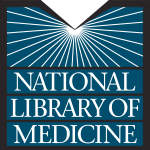- Industry: Library & information science
- Number of terms: 152252
- Number of blossaries: 0
- Company Profile:
The National Library of Medicine (NLM), on the campus of the National Institutes of Health in Bethesda, Maryland, is the world's largest medical library. The Library collects materials and provides information and research services in all areas of biomedicine and health care.
Compartment in the interphase eukaryotic cell bounded by a double membrane and containing the genomic DNA, with the associated functions of transcription and processing.
Industry:Biology; Chemistry
Complete set of chromosomal and extrachromosomal genes of an organism, a cell, an organelle, or a virus, i.e. the complete DNA component of an organism.
Note: This includes both the DNA present in the chromosomes and that in subcellular organelles (e.g. mitochondria or chloroplasts). It also includes the RNA genomes of some viruses.
Industry:Biology; Chemistry
Complete unit of gene expression and regulation, including structural genes, regulator gene(s) and control elements in DNA recognized by regulator gene product(s).
Industry:Biology; Chemistry
Complex consisting of an iron ion coordinated to a porphyrin acting as a tetradentate ligand, and to one or two axial ligands.
Industry:Biology; Chemistry
Complex consisting of an iron ion coordinated to a porphyrin acting as a tetradentate ligand, and to one or two axial ligands.
Industry:Biology; Chemistry
Component of the work environment the effect of which on a worker under certain conditions leads to ill health or reduction of working ability.
Industry:Biology; Chemistry
Concentration of a pesticide (active ingredient, formulations, and relevant metabolites) that is likely to affect a determinable ecological characteristic of an exposed system.
Industry:Biology; Chemistry
Concentration of a pesticide (active ingredient, formulations, and relevant metabolites) that is likely to affect a determinable ecological characteristic of an exposed system.
Industry:Biology; Chemistry
Concentration of a substance in an environmental medium that causes death following a certain period of exposure.
Industry:Biology; Chemistry
Concentration of a substance in one phase divided by the concentration of the substance in the other phase when the heterogeneous system of two phases is in equilibrium.
Note 1: The ratio of concentrations (or, strictly speaking, activities) of the same molecular species in the two phases is constant at constant temperature.
Note 2: The octanol/water partition coefficient is often used as a measure of the bioconcentration factor for modeling purposes.
Note 3: This term is in common usage in toxicology but is not recommended by IUPAC for use in chemistry and should not be used as a synonym for partition constant, partition ratio or distribution ratio.
Industry:Biology; Chemistry
